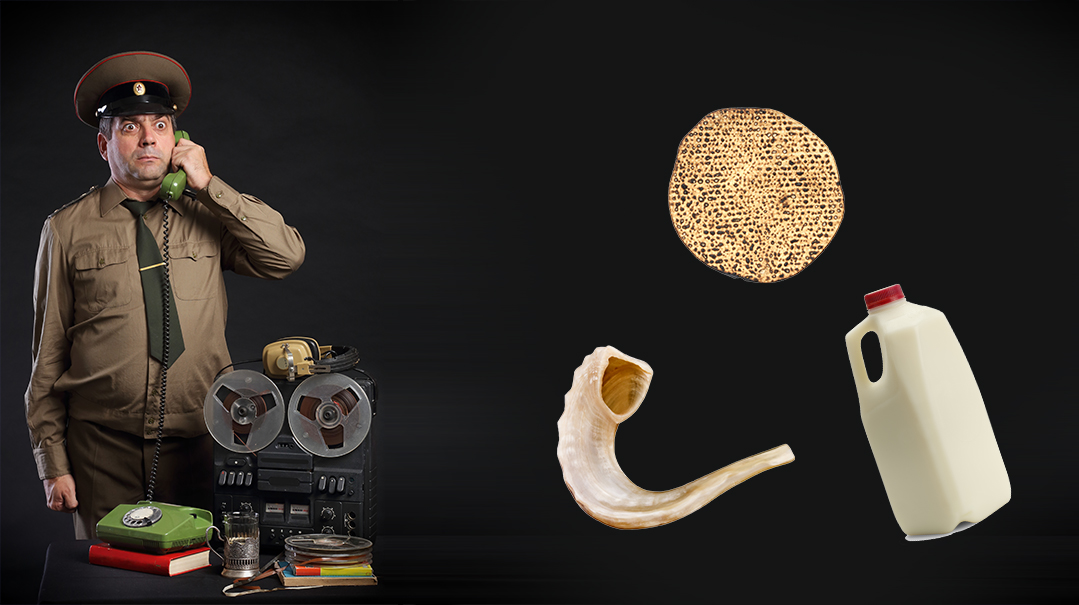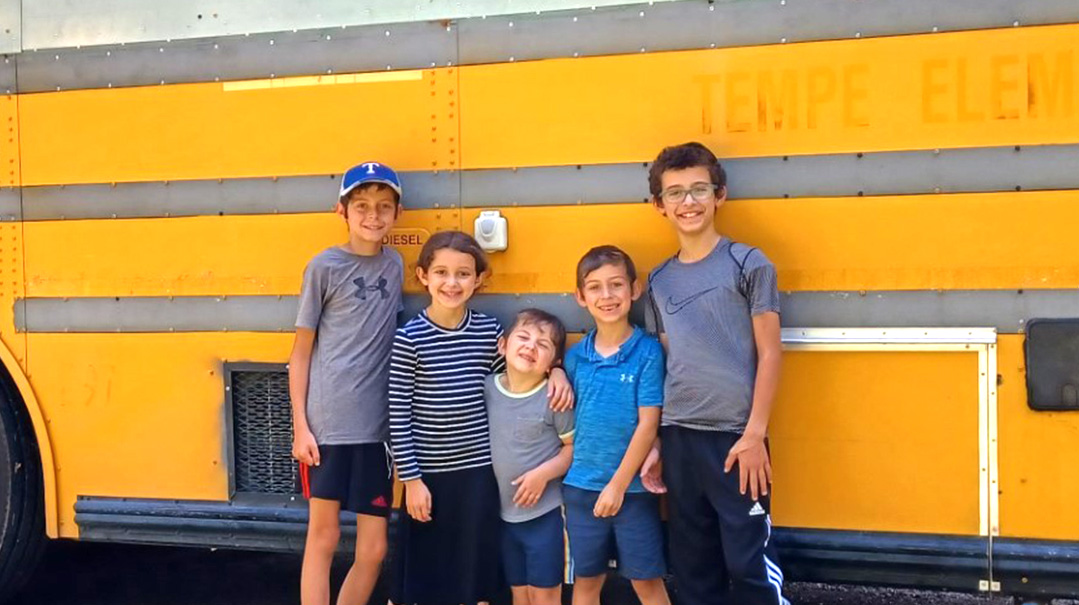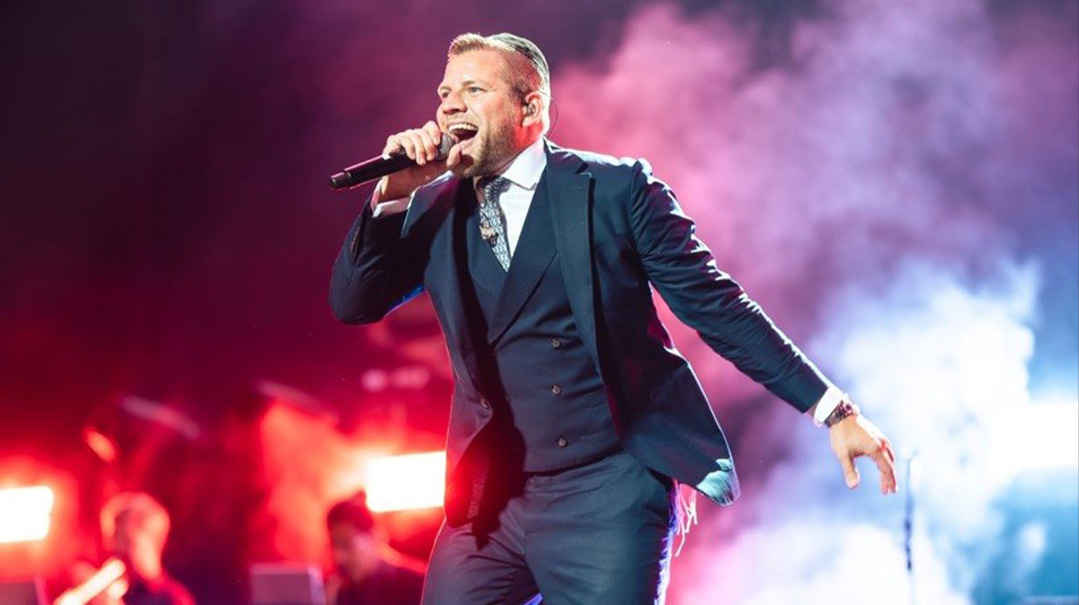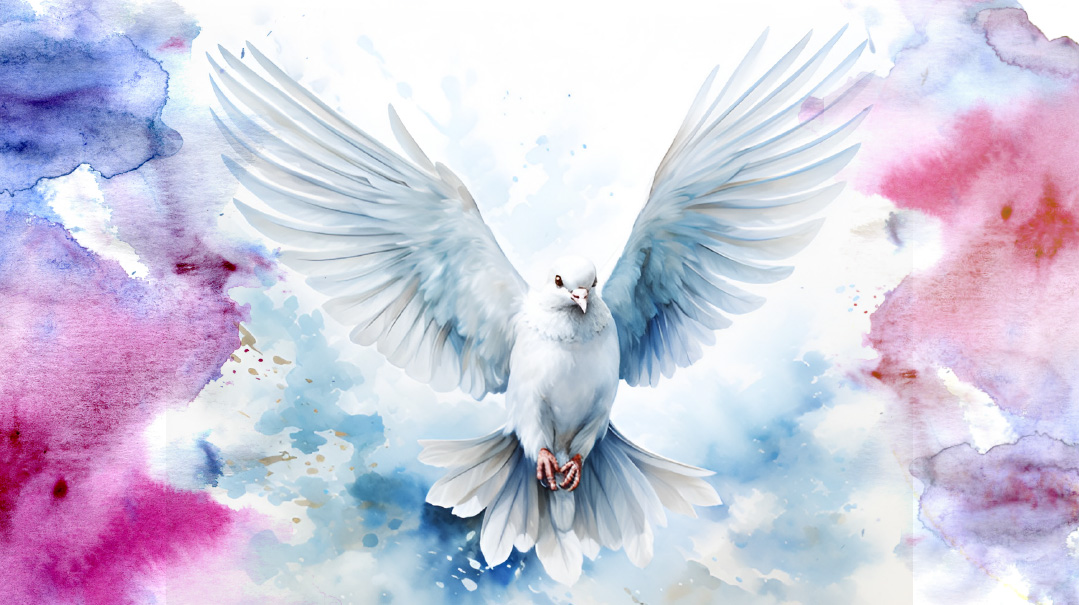Fighting for Freedom
| April 6, 2020Destination: the USSR — the Union of Soviet Socialist Republics, also known as “Russia”

The borders are all but closed. Visas can be obtained, but getting them is not easy. Still, you decide to take a chance and enter a land that is a countrywide jail, and the people who live there will risk their freedom to meet you. Destination: the USSR – the Union of Soviet Socialist Republics, also known as “Russia.”
In the 1970s and 1980s, Communism ruled the entire Eastern Europe, and thousands of Jews were trapped in its jaws. KGB agents secretly crawled the streets and listened in on phone conversations. Keeping Torah and mitzvos was criminal, and many Jews barely knew the basics of Yiddishkeit. But they thirsted for it, and they were willing to risk their freedom just to learn Torah.
Agudas Yisrael of America stepped into this desperate situation. Harav Mordechai Neustadt z”l took a trip to the USSR and saw how much the Jews lacked in order to be able to keep Torah and mitzvos. He founded an organization called Vaad l’Hatzolas Nidchei Yisroel, which sent shaliach after shaliach to the USSR. Every trip was carefully planned, so that the shluchim of the Vaad could give shiurim, chizuk, and bring practical items to the Jews of the Soviet Union. These shluchim also got to see what it was really like in Eastern Europe.
Daily Life in Eastern Europe
When you need milk or bread, all you need to do is take a short walk around the corner to the grocery store. The store might have really long checkout lines, but even if they do, how long does the whole trip take? In the USSR, you would have to go to two booths; one that sold milk, and one that sold bread. And at each booth you would have to wait, sometimes for an hour or more, for your turn to buy these basics. There was a line for everything — bread, fruit, clothing, shoes. And you were lucky if you got what you needed because there were shortages of everything.
A Week in the Life of a Shaliach of the Vaad l’Hatzolas Nidchei Yisroel
June 19,1984: Tuesday Today is the day I fly out to Russia. I’ve been preparing for days with a Vaad representative, and the trip is all planned out. My black hat has been left behind in favor of a baseball cap, as I need to seem like a typical tourist. I have pockets full of coins for the payphones where I will be able to make phone calls and not be overheard, and my coded list of contacts and their phone numbers is safely tucked into my suitcase. I have even learned to read Cyrillic (Russian alphabet) so that I can read the street signs and get where I need to go without asking for help.
June 20, 1984: Wednesday I’ve landed in Moscow. With siyata D’shmaya, my suitcases make it in without getting confiscated. A government employee waited outside the airport to take me to a special hotel for foreigners. They want to make sure I have as little contact with Russians as possible. After depositing my bags in the hotel, I go out in search of a payphone. Although there is a payphone right across from the hotel, the government is watching that phone carefully. Walking nonchalantly, acting like a typical tourist, I stop at a few shops to look around. About five or ten minutes from the hotel, I find a payphone and call my contact. Upon meeting with him, I give him the psak halachah paskened by R’ Moshe Feinstein. He had asked the previous shaliach one of the many sh’eilos on my list, and part of my job here is to bring him his answer. He also lets me know that it is safe for me to go to shul, so I plan to daven with a minyan tomorrow.
June 21, 1984: Thursday I wake up to daven in shul with a minyan. Knowing that there are informers everywhere, I am careful with whom I speak and what I do. Afterwards, I take a train to deliver my first shiur. I could really hire a taxi and stop a few blocks away, but taking the train is a lot safer. When I get to the building, there is a government official watching who goes in and out. He knows I am there. He probably even knows why. Many shluchim get kicked out of the country after their first shiur, so I know I have to be careful. Inside, there are two Russian baalei teshuvah waiting to learn basics of Yiddishkeit. We learn about brachos this time. I mention a banana, but they have never heard of a banana, let alone seen one! When we are done, I go on a tour of the Kremlin. After all, I must appear to be a regular Russian tourist.
June 22, 1984: Friday First I meet with one of my contacts. He is a gabbai tzedakah of sorts, and knows the families in need. I have brought a Japanese camera worth around $300 in the US. It can be sold on the black market here for enough money to support a family for half a year! He will take the camera and give it to those in need. Afterwards I head to the Beryozka store, a store for government officials and foreigners where all sorts of items that are hard to get in Russia can actually be found. There, I buy cases of baby formula, and foods like chocolate and candy. I plan to give it all out to people in need. Then I head back to the hotel to prepare for Shabbos.
Friday Night Before I left the United States, the Vaad representative told me where the stairs are so I can avoid the elevator without arousing suspicion. I am bringing food for the seudah to the homes of the people who are hosting me. After davening in my room, I head out at a brisk pace to the home of my hosts. The seudah is beautiful, and I give them a taste of a real Shabbos. We sing zemiros, and I teach them new tunes that they have never heard before. The meat that I have given them is the only meat they have.
June 23, 1984: Shabbos Day I daven in my hotel room and then walk to the home of the family that will be hosting me for the seudah. Again, I get to show them the beauty of a real Shabbos, and the deli I have given them is the only Kosher meat they have seen in a long time. After Seudah Shilshis at yet a third family, the beautiful Shabbos comes to a close.
June 24, 1984: Sunday Today I daven at the hotel and then head to the train station. My first stop is to the Tomb of Lenin, where I continue my act as a typical tourist. Afterward, I make my way to a house for another shiur. I must be very careful, as there will be children coming to my shiur. Teaching children religion is one of the worst crimes in the USSR. A man here was arrested and his children placed in an orphanage when his son came to school wearing tzizis. Instead of teaching mitzvos, I tell the children stories from the Torah. That is much safer. Then I go back to my hotel.
June 25, 1984: Monday Today I prepare to leave. Baruch Hashem, I manage to meet with my contacts and get a list of new sh’eilos to ask the rabbanim in America. The next shaliach will bring back the answers. I also have a list of items for him to bring. Lastly, I have a list of people who are in trouble with the Russian government. Hopefully with some political pressure we will be able to get them out of jail.
My government guide arrives to take me to the airport, and we go by taxi together. At customs, they check to make sure we are not bringing back any pictures, videos, or letters from any Russian citizens. They are afraid to look bad in front of the Western world. Since I have carefully written the information I need to bring back to America in a way they won’t understand, I am fairly sure I can get my papers through. Still, I breathe a sigh of relief when I make it to the other side of customs.
June 26, 1984: Tuesday Upon landing in the United States, I go straight to the Vaad’s office where someone is waiting for me. We go through the whole trip — what has been accomplished, what the Jews need, and how the trip went. They try to send a shaliach every month, for a week to ten days. The next one will have his mission set up based on my report. Finally, my job is over. Until next time.
Sneaking Around in a Police State
Every trip of every shaliach of the Vaad entailed risks, hopes, and a lot of help from Hashem. Before Pesach, there was an especially great need to bring matzos, meat, cheeses and other Pesach items for the Jews of Russia. One year, for three consecutive months, every shaliach had had his suitcases confiscated. A fourth shaliach, Yitzchok, was sent. Yitzchok fully expected his suitcase to be confiscated, but he knew he had to try. Finally, his turn in the customs line came.
“Put your suitcase up on the counter,” the officer barked. Yitzchok knew that this was it. His suitcase was as good as gone. As the officer unzipped the suitcase, they suddenly heard screaming and yelling from the customs counter across the room. Everyone froze.
A man stood there holding a huge, beautifully carved mirror. “I was a soldier in the army of this country!” he screamed. “I am a hero! I should be able to bring in this mirror without paying a single ruble!”
“You must pay taxes to bring in that mirror,” the officer answered
“I will not pay these taxes! If I cannot bring in the mirror without paying taxes then no one will have it!” As he said it, he slammed the mirror onto the security desk. The glass shattered and scattered everywhere.
The security guard turned to Yitzchok, zipping the suitcase he had just been about to open. “Go,” he said, pushing the suitcase towards him. After three tries, the food and sefarim would finally make it into the Soviet Union.
We See You
Here’s how the Russian government tried to prevent shluchim from making any “trouble”:
- On every floor of every hotel, there was a guard who wrote down every time a guest came into or left his room.
- Inside each hotel room there was a two-way radio that couldn’t be turned off. Anything said in the room could be heard by the government.
- An operator on the other end of overseas calls listened in on the whole call, and if she couldn’t hear what someone said, she had no problem asking him to speak louder!
- Wherever a shaliach went, he was followed by a government agent.
Shluchim of the Vaad had to be very careful. They came to help the Jews and needed to ensure that they didn’t do anything to make their situation worse. But with their efforts, they were able to teach Torah to the hundreds of Yidden who had no other way to learn. It was risky, it may have been scary at times, but it was worth it!
Timeline:
- 1890s – Russia is under the reign of the Czar. Peasants live in poverty and are oppressed by the government.
- 1917 – Bolshevik Revolution Over the course of less than a year, the people of Russia rebelled against the Czar, as well as all figures of authority. Vladimir Lenin took over as leader of the country. He spoke about creating a society with no class system. In reality, he created a police state — a country ruled by the police.
- December 1917 – The Cheka, the original name of the KGB, is established.
- January 1924 – Joseph Stalin takes over as leader of Russia. He was a ruthless dictator who killed millions of people over his years as leader.
- 1940-1979 – Communist ideas spread all across Eastern Europe.
- 1945 – World War II ends. Europe is divided into the democratic Western side, and the communist Eastern side.
- 1947 – The Cold War begins. The US decides that Communism must be prevented from spreading to more countries.
- 1989 – The Berlin wall falls.
- December 1991 – The Soviet Union is dissolved, and the Iron Curtain falls.
Terms:
- Communism – a political and economic idea that removes all classes in society, and puts society under government control. Everything is shared equally.
- Capitalism – A country’s economy (buying and selling) is controlled by private people and not by the government. The United States is capitalist.
- KGB – An organization whose goal was to catch anyone who had ideas against the Russian revolution. Anything that seemed to oppose the ideas of the communist leaders was suspicious.
- The Iron Curtain – The Iron Curtain is a term that refers to the way the ideas of democracy were separated from the ideas of communism. Eventually it included a physical border as well.
- USSR – Union of Soviet Socialist Republics. Russia and the surrounding countries were all under one government and were called the USSR.
(Originally featured in Mishpacha Jr., Issue 806)
Oops! We could not locate your form.





